PABLO
Pablo's Saga Update
Many of my readers will recall the several essays we wrote
about Pablo, the Cuban street dog whom Amanda found in Havana's Central Park
and his adventures and misadventures which finally got him adopted into
Amanda's home in Los Angeles. Part of
that saga was Pablo's long spell in the home of an elderly lady in her
nineties—a long time family friend of Nora's.
That lady was Pablo's foster mother who kept him several months while he
recuperated from sicknesses he contracted as a street dog. After regaining his health, Pablo had a
period of vet treatment to get a health certificate that would permit him to
travel to his new home in California.
That period of foster care was difficult for Pablo and for
Nora. The foster mom came to love the dog,
and for a while I wondered if he would ever get to the US. Nora had to make 2 trips a day to the old
lady's house to bring food to the dog and to help out his foster mother. The trip involved a bus ride, and once a
sprained ankle almost grounded Nora as she fell on getting out of the bus.
But perseverance won the day, and after a false start, one
day he boarded a plane for Miami. My
friend, Davis Hawn of service dog training fame, met Pablo at the airport, got
him a US vet's certificate, and put him on another plane to Amanda.
For some time after that I heard little about the old lady,
but one day Nora told me she had moved into Nora's apartment so that Nora could
take care of her. Now in her
mid-nineties, her dementia had worsened, and she could no longer live in her
place alone. Being Nora's family friend,
Nora felt she could not leave her without regular care, so the only option was
to take her into Nora's apartment.
But Nora's regular trips to the elderly lady's house didn't
stop. The lady had two dogs she loved,
and Nora chose to look in on them once each day, bringing them food. So the story of hard work and making do with
few resources continues. As the woman's
condition worsens, she can no longer live alone. There are some refuges for incapacitated people,
but Nora says those with reasonable prices are unacceptable, so she goes on
caring for her old friend in her own home.
Nora has a wonderful friend, Maria Julia, who visits at
Nora's place and helps with the work. If
it weren't for her help, Nora would be pinned down at home, working as a full
time caregiver, and unable to leave.
Life is hard in Cuba for the average person. Most people get along on a very small salary
or pension, scant food rations, and perhaps a few CUC's scrounged from selling
personal possessions or taking in a boarder.
A very few have enough resources to buy whatever they need.
And caring for a friend with dementia is particularly
frustrating as the essence of your old friend gradually disappears until there
is no recognition, no intelligible communication—none of the spark of the
person left to enjoy.
But somehow life goes on still needing the feeding, the
bathing, the medicines, and leaving the caregiver asking herself, why is this
life like it is? Is it really meant to
be this way?
Les Inglis













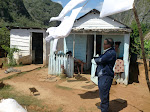




























































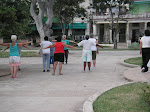

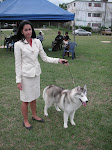


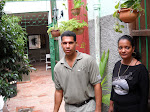





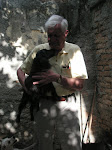





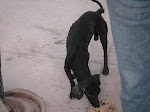



No comments:
Post a Comment